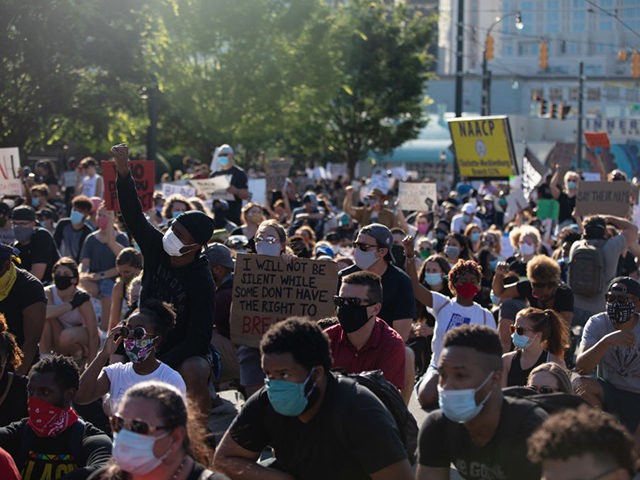North Carolina’s Asheville City Council on Tuesday voted unanimously to pass a repentant measure that formally apologizes to black residents and moves to issue reparations in the form of investments in certain areas of the community through the creation of the Community Reparations Commission.
The resolution, which passed 7-0, does not include cash payments made directly to black residents but does call on the city to form the Community Reparations Commission, which would hear from community leaders and groups who would, in turn, make recommendations on where funds should be directed.
“Hundreds of years of black blood spilled that basically fills the cup we drink from today,” Keith Young, a black member of the council, said.
“It is simply not enough to remove statutes. Black people in this country are dealing with issues that are systemic in nature,” he added.
The measure, titled “Resolution Supporting Community Reparations for Black Asheville,” cites a host of reasons for the resolution, including “racist practices in the private realty market,” “discriminatory wages,” “inadequate” health care, and policing.
The measure states, unequivocally, that “systemic racism was created over centuries and will take time to dismantle” and declares that state and federal governments “have a responsibility to adopt programs, policies, and funding to address reparations.”
The resolution has the city council apologizing for “its participation in and sanctioning of the Enslavement of Black People,” as well as for its “enforcement of segregation and its accompanying discriminatory practices.”
It calls on “other organizations and institutions” in the city that have “advanced and benefitted from racial inequality” to apologize alongside the city council and work with the city to “address systemic racism.” It also urges the state and federal government to “initiate policymaking and provide funding for reparations at the state and national levels.”
As for the local level, the city council “seeks to establish within the next year, a new commission empowered to make short, medium and long term recommendations that will make significant progress toward repairing the damage caused by public and private systemic Racism.”
The resolution states in part:
Other local government community organizations may also be invited to have representation on the Commission. The task of the Community Reparations Commission is to issue a report in a timely manner for consideration by the City and other participating community groups for incorporation into their respective short and long term priorities and plans. Accountability for achieving equity will be enforced in the appropriate offices. The report and the resulting budgetary and programmatic priorities may include but not be limited to increasing minority homeownership and access to other affordable housing, increasing minority business ownership and career opportunities, strategies to grow equity and generational wealth, closing the gaps in health care, education, employment and pay, neighborhood safety and fairness within criminal justice.
The city council’s move comes as federal lawmakers continue in their push to pass Rep. Sheila Jackson Lee’s (D-TX) Commission to Study and Develop Reparation Proposals for African-Americans Act, or H.R. 40. The legislation is included in the “Biden-Sanders Unity Task Force” proposal, which states:
Democrats commit to the important first step of supporting H.R. 40, which would establish a commission to examine how the legacy of 246 years of slavery and another century of Jim Crow segregation continues to impact the economic prospects of Black Americans today, and to recommend remedies.
Reps. Rashida Tlaib (D-MI) and Ayanna Pressley (D-MA) have also expressed support for reparations by way of the BREATHE Act, which calls for the establishment of commissions that “design reparations for mass criminalization—including the War on Drugs, the criminalization of prostitution, and police violence; border violence; and the systemic violation of the U.S. Government’s treaty obligations to Tribal nations.”

COMMENTS
Please let us know if you're having issues with commenting.